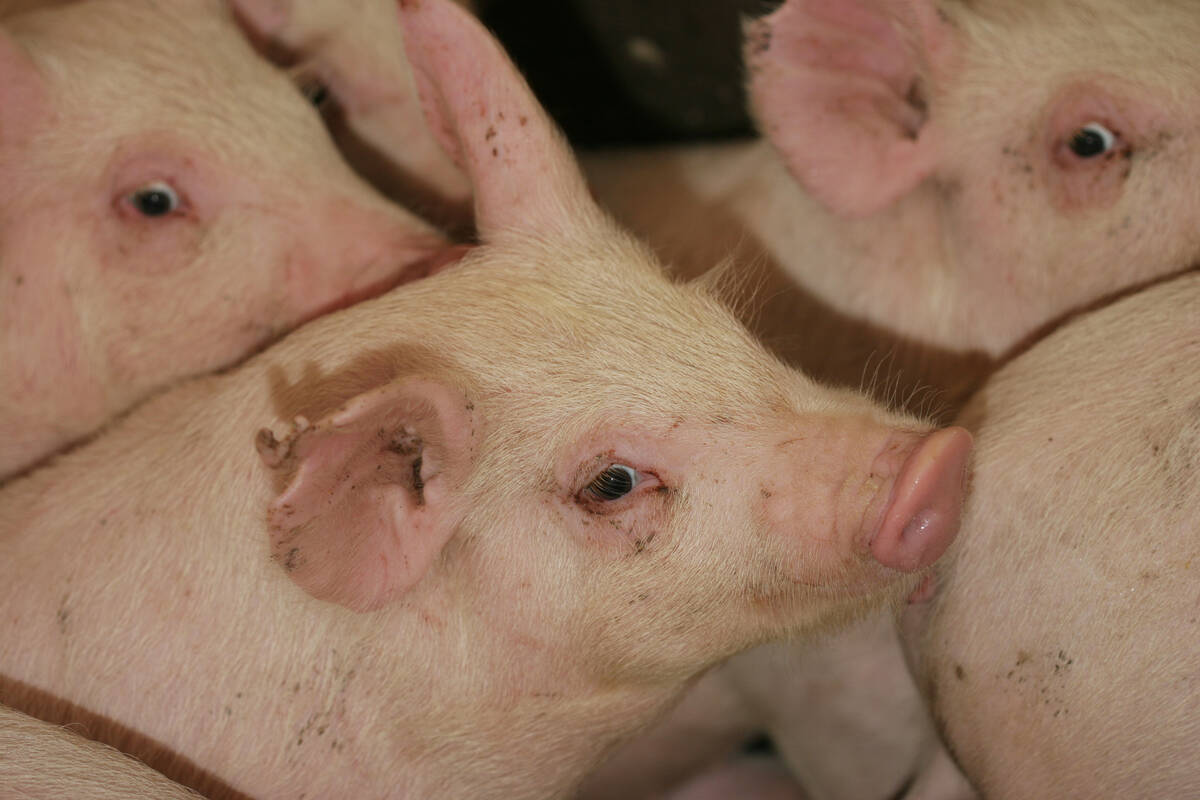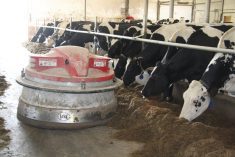Glacier FarmMedia – Research out of Saskatchewan might have a new line on a way to combat swine dysentery and boost pig immune systems.
The work revolves around the discovery of a host defence peptide, dubbed pBD-5.
“Our lab specializes in diseases where the producers’ only option is antibiotics,” said doctoral student Arthur Nery Finatto, part of the team from the University of Saskatchewan.
Read Also

Lending policy still focused on primary producers: Farm Credit Canada
Farm Credit Canada said it has not changed its business practices and remains committed to supporting all producers, after a report from an Ottawa-based media outlet claimed otherwise.
Swine dysentery is the main disease studied at the lab.
The illness stems from a bacteria called Brachyspira hyodysenteriae. Once infected, pigs develop diarrhea with blood and mucous appearing in the feces.
There is no vaccine to prevent it.
“Pigs can die from swine dysentery, but the clinical signs of infection are the real problem,” said Nery Finatto.
“Swine dysentery reduces a pig’s performance and its ability to absorb nutrients and gain weight. Mortality can reach about 20 per cent.”
Growing finisher pigs are often the most significant victims, hitting at animal production just as producers are trying to get stock in condition for the slaughterhouse.
Antibiotics must be used to treat the disease, which means the window between antibiotic use and slaughter could be disrupted.
“This is challenging, and we do need alternatives to these problems,” the researcher said.
Working with his supervisor, Matheus Costa, Nery Finatto ran several years of trials looking for a better handle on the illness.
He found that some pigs did not spread swine dysentery, while others were less likely to express the disease after exposure.
The research separated pigs into two groups: one treated with an antibiotic and the other an untreated control. Pigs were then infected with the Brachyspira hydodysenteriea bacteria.
However, some of the pigs in the control group did not get sick in the first three days after infection.
To solve this mystery of the pigs’ apparent good health, researchers turned to the animals’ large intestines, the organ where many nutrients are absorbed from their diet.
The team then used a technique called transcriptomics, which takes a picture of the genes being expressed at a specific moment.
What they found was what they now know as the natural production of pBD-5, and they found that some pigs produce more of it than others.
From there, it was time to see if they could take that apparent natural defence and make it into a more broadly applicable tool against infectious disease.
They joined forces with chemistry scientists at the Université de Québec à Montréal. Together, the researchers found that they could indeed synthesize the peptide.
Synthesized peptides were exposed to two different groups of bacteria. In both cases, bacterial growth was inhibited.
“This was really exciting because it was a molecule naturally produced by the pig,” said Nery Finatto.
Pig cells were also exposed to pBD-5 and showed signs of responding positively.
Genes causing inflammatory response were downgraded, and researchers found antibody producing cells increased their activity when exposed to the peptide.
“This demonstrated that the molecule cannot only inhibit bacterial growth but can also mitigate the inflammatory clinical signs at the specific site of infection,” Nery Finatto said.
It’s Nery Finatto’s hope that his research could help pigs develop better immunity over time.
Breeders, for example, could look for pigs with high levels of pBD-5.
“The second option is to basically produce this protein in a lab and give it orally to pigs when they are sick instead of antibiotics,” he said.
Using pBD-5 could reduce reliance on antibiotics, he added.
Researchers from the University of Saskatchewan recently published a paper about the discovery in the journal Scientific Reports.
















